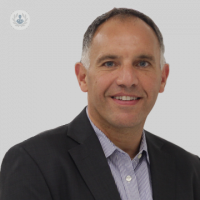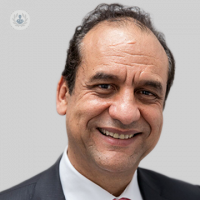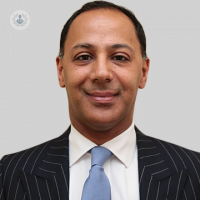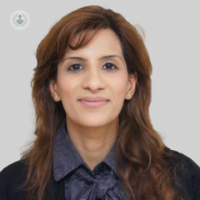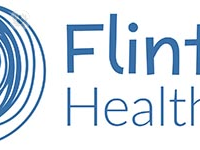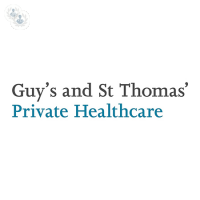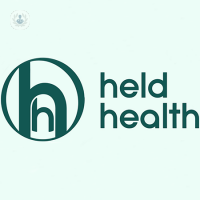What is ADHD?
Attention Deficit Hyperactivity Disorder (ADHD) is a neurodevelopmental disorder that affects behavior and begins in childhood. ADHD can be classified into three types:
- Inattentive (lack of attention)
- Hyperactive-impulsive
- Combined (symptoms of the two types at the same time)

What are the symptoms of ADHD?
ADHD is characterised by an excessive increase in impulsivity, hyperactivity, as well as difficulty maintaining attention in an activity for a continuous period of time. When this type of behaviour is persistent, more frequent and of greater intensity than usual in children of their age, it can affect their school performance and their relationships in various areas of their lives. Later in life, it can cause problems at work as well as relationships at home.
In many cases, a person affected by ADHD will also suffer from other disorders, such as depression, anxiety or learning disorders.
What are the causes of ADHD?
The cause of ADHD is unknown, but researchers have pointed to a number of possibilities:
- ADHD may be due to a malfunction of neurotransmitters (messengers) in the area of the brain responsible for the executive system that dominates the capacity for concentration and attention.
- ADHD may be genetic and sometimes runs in families
- ADHD could be a developmental problem caused by issues during pregnancy such as smoking, drinking, or poor nutrition
- ADHD may sometimes be acquired, due to a head injury or exposure to toxic chemicals such as lead
How is ADHD diagnosed?
When you visit the GP about ADHD they will ask you about your symptoms, how long you have had them for, and how frequently they occur. If the doctor suspects ADHD you may be referred for a formal assessment. If you see the GP as an adult, under current diagnostic guidelines you cannot be given a formal diagnosis unless you have had symptoms since childhood. To establish whether this is the case the doctor may wish to interview your family members and friends to ask about the history of your symptoms.
What is the treatment for ADHD?
A correct diagnosis is important to establish an adequate treatment for each patient. The main treatments are:
- Psychological: using therapies such as behavior, training for parents, cognitive therapy and training in social skills.
- Psycho-pedagogical: it is based on the reeducation of the child to improve their academic performance as well as teacher training to detect the problem as soon as possible.
- Pharmacological: including both stimulants and non-stimulant medication.
ADHD
What is ADHD?
Attention Deficit Hyperactivity Disorder (ADHD) is a neurodevelopmental disorder that affects behavior and begins in childhood. ADHD can be classified into three types:
- Inattentive (lack of attention)
- Hyperactive-impulsive
- Combined (symptoms of the two types at the same time)

What are the symptoms of ADHD?
ADHD is characterised by an excessive increase in impulsivity, hyperactivity, as well as difficulty maintaining attention in an activity for a continuous period of time. When this type of behaviour is persistent, more frequent and of greater intensity than usual in children of their age, it can affect their school performance and their relationships in various areas of their lives. Later in life, it can cause problems at work as well as relationships at home.
In many cases, a person affected by ADHD will also suffer from other disorders, such as depression, anxiety or learning disorders.
What are the causes of ADHD?
The cause of ADHD is unknown, but researchers have pointed to a number of possibilities:
- ADHD may be due to a malfunction of neurotransmitters (messengers) in the area of the brain responsible for the executive system that dominates the capacity for concentration and attention.
- ADHD may be genetic and sometimes runs in families
- ADHD could be a developmental problem caused by issues during pregnancy such as smoking, drinking, or poor nutrition
- ADHD may sometimes be acquired, due to a head injury or exposure to toxic chemicals such as lead
How is ADHD diagnosed?
When you visit the GP about ADHD they will ask you about your symptoms, how long you have had them for, and how frequently they occur. If the doctor suspects ADHD you may be referred for a formal assessment. If you see the GP as an adult, under current diagnostic guidelines you cannot be given a formal diagnosis unless you have had symptoms since childhood. To establish whether this is the case the doctor may wish to interview your family members and friends to ask about the history of your symptoms.
What is the treatment for ADHD?
A correct diagnosis is important to establish an adequate treatment for each patient. The main treatments are:
- Psychological: using therapies such as behavior, training for parents, cognitive therapy and training in social skills.
- Psycho-pedagogical: it is based on the reeducation of the child to improve their academic performance as well as teacher training to detect the problem as soon as possible.
- Pharmacological: including both stimulants and non-stimulant medication.


"ADHD doesn't exist" - a top psychologist debunks the myth
By Dr Valentino A. Pironti
2024-11-21
“Everybody has ADHD symptoms. If we search for these symptoms in people, then everybody has ADHD". While this statement is somewhat true, ADHD symptoms are more complex than many realise and when the condition is correctly defined, it is more than real. Yet critics remain unconvinced. Dr Valentino A. Pironti, a leading psychologist in London and Cambridge, aims to resolve this common misconception. See more
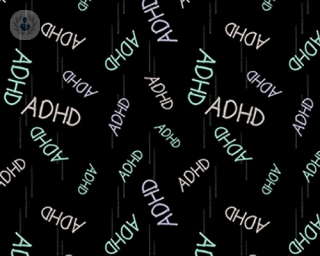

MindFit: Streamlining ADHD diagnosis with online evaluations
By Dr Thomas Dannhauser
2024-11-21
In today's landscape, where the demand for ADHD assessments outpace available resources, individuals often face daunting waiting lists before receiving the necessary evaluation. We recognised this and created the MindFit clinic to provide an online ADHD evaluation that offers a timely solution. Tailored for those encountering barriers to accessing traditional medical-grade testing, this comprehensive evaluation empowers individuals to gain insights into their ADHD symptoms and navigate their diagnostic journey more efficiently. In his latest online article, Dr Thomas Dannhauser gives us his insights. See more
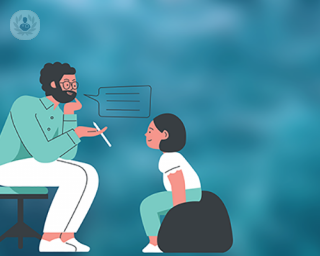

Navigating ADHD: Understanding and assessing the disorder
By Dr Rajnish Attavar
2024-11-21
ADHD is a neurodevelopmental disorder that impacts individuals throughout their lives, causing difficulties in attention, poor concentration, impulse control, and hyperactivity. Proper assessment is crucial for accurate diagnosis and effective intervention. In his latest online article, Dr Rajnish Attavar explores the multifaceted process of ADHD assessment, covering key components and considerations. See more


How might undiagnosed ADHD affect children in their teenage years?
By Dr Rajendra Mahendrakar
2024-11-21
In this article here, Dr Rajendra Mahendrakar, an esteemed consultant neurodevelopmental paediatrician, outlines the most common known causes of ADHD in children, and tells us what could happen if ADHD is left untreated. See more
Experts in ADHD
-
Dr Andy Zamar
PsychiatryExpert in:
- Bipolar disorder
- Depression
- ADHD
- Post-traumatic stress disorder (PTSD)
- Premature ejaculation
- Stress
-
-
-
Dr Bijal Chheda-Varma
PsychologyExpert in:
- Mental health assessment
- Autism
- ADHD
- Anxiety
- Obsessive compulsive disorder (OCD)
- Eating disorders
-
Dr Ayman Zaghloul
PsychiatryExpert in:
- ADHD
- Anxiety
- Depression
- Bipolar disorder
- Dual pathology
- Psychotic disorders
- See all

Flint Healthcare
Flint Healthcare
8, Hunns Mere Way, Woodingdean Office Campus, Brighton
No existe teléfono en el centro.
By using the telephone number provided by TOP DOCTORS, you automatically agree to let us use your phone number for statistical and commercial purposes. For further information, read our Privacy Policy
Top Doctors

Westminster Bridge Consulting Rooms at St Thomas' Hospital Private Healthcare.
Westminster Bridge Consulting Rooms at St Thomas' Hospital Private Healthcare.
Westminster Bridge Road, London
No existe teléfono en el centro.
By using the telephone number provided by TOP DOCTORS, you automatically agree to let us use your phone number for statistical and commercial purposes. For further information, read our Privacy Policy
Top Doctors

Held Health
Held Health
The Generator, The Quay, EX2 4AN
No existe teléfono en el centro.
By using the telephone number provided by TOP DOCTORS, you automatically agree to let us use your phone number for statistical and commercial purposes. For further information, read our Privacy Policy
Top Doctors
-
Flint Healthcare
8, Hunns Mere Way, Woodingdean Office Campus, Brighton , BrightonExpert in:
- Depression
- Psychosis
- Psychiatry
- ADHD
- Bipolar disorder
- Post-traumatic stress disorder (PTSD)
-
Westminster Bridge Consulting Rooms at St Thomas' Hospital Private Healthcare.
Westminster Bridge Road, London , SE1 South Bank LondonExpert in:
- General Surgery
- Orthopaedic surgery
- Plastic surgery, reconstructive and aesthetics
- Endocrinology
- Obstetrics and Gynaecology
- Paediatrics
-
Held Health
The Generator, The Quay, EX2 4AN, ExeterExpert in:
- Anxiety
- Autism
- Child development
- Child Psychology
- Child Psychiatry
- ADHD
- See all
- Most viewed diseases, medical tests, and treatments
- School refusal
- Migraine
- Maternal mental health
- Paediatric rheumatology
- Autoimmune diseases
- Joint pain
- Child nutrition
- Nutrition
- Abdominal pain
- Pelvic pain syndrome
